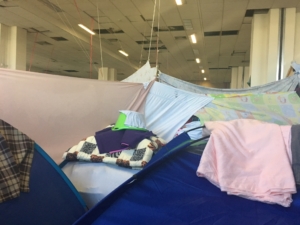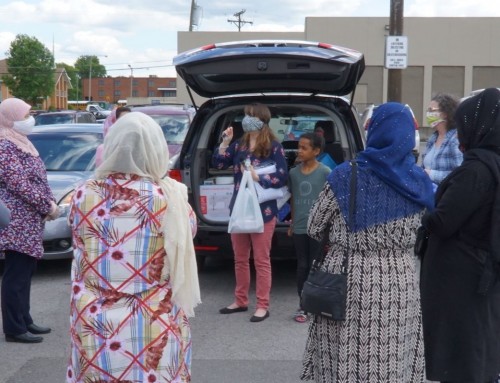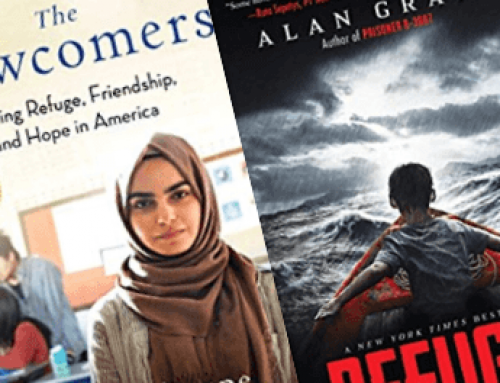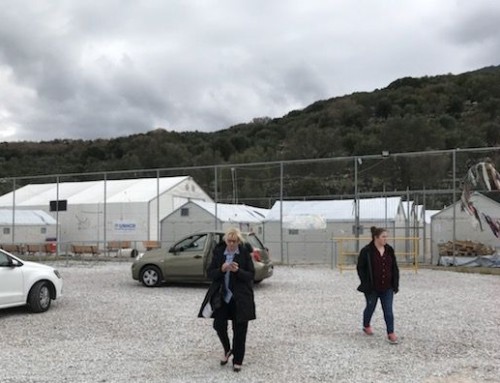Adnan’s Story
Adnan has lived in Athens for about a year now. Like many others floating in the ancient Greek city, he’s from Syria. But that Syria doesn’t exist anymore. He’s been able to work some for the last few months helping medical personnel and teaching about mental health issues relating to trauma. He’s a wonderful man with a great heart — one of many who have refused to let his refugee tragedy break them, but have instead used it as fuel to make a difference.
 His story is like so many others. Forced to leave his homeland because of the awful violence and unacceptable inhumanity by some of his fellow countrymen and foreign militants like ISIS. He and his family fled from place to place inside Syria for years before he was finally able to leave.
His story is like so many others. Forced to leave his homeland because of the awful violence and unacceptable inhumanity by some of his fellow countrymen and foreign militants like ISIS. He and his family fled from place to place inside Syria for years before he was finally able to leave.
What many of us do not realize is that for the millions who have fled the country entirely, there remain anywhere between 18 and 20 million people who have been displaced within the Syrian borders! Adnan’s youngest sister and his mother are still there, in ISIS controlled territory because his mother’s health makes it impossible to travel. Other members of his family are scattered throughout Europe.
Numb to Death
Adnan’s exodus from Syria involved being arrested, jailed for two months, and having a gun held to his head by a female ISIS fighter who insisted that he was also with ISIS. He eventually became so numb to the frequency of threats against his life that he didn’t even care if he died.
Finally, Adnan made it to the Turkish border where the crossing involved avoiding unmanned machine guns designed to shoot at sensory movement. He just had to run blindly in the dark into Turkey. He crossed Turkey and went to Greece by boat.
At this point, he had endured what so many others have: separation from home, family, friends, without clothes, food, money, and support.
These stories tear at our hearts. But the most moving part of the conversation was when he shared what he felt about Americans that came over for a week at a time and what he got from those experiences.
Why Do We Go?
 He said that after his escape and connecting with organizations in Greece, he started being asked to share his story. Often this was by media with their own agenda or by other well-meaning parties who looked down on the refugees and felt sorry for them. He told us that initially, he didn’t want to share but that he felt like God was telling him he must share. He feels that he is meant to be a voice in the crisis and tell the people the truth about it.
He said that after his escape and connecting with organizations in Greece, he started being asked to share his story. Often this was by media with their own agenda or by other well-meaning parties who looked down on the refugees and felt sorry for them. He told us that initially, he didn’t want to share but that he felt like God was telling him he must share. He feels that he is meant to be a voice in the crisis and tell the people the truth about it.
Adnan said he appreciated Lisa, SGI and our teams who come to hear his story and build a relationship with him and many others. He did not feel like we were there with wrong motives, some false agenda, or out of pity. He said it was important that we take his story and share like he is doing.
“People need to understand us,” he said. “We are not just those poor refugees to feel sorry for. We are people: fathers, mothers, families, college students, businessmen. We did not choose to leave.”
What Kind of Shoes Should I Wear Today?
He described a moment when he was eating a meal with folks from the EU and one woman remarked to him, “Oh, you use utensils!” He joked with her out of kindness, but that question is not unlike so many he gets and is even more reflective of how disconnected and potentially ignorant people can be.
Another time he was asked, “What made you decide to come to Greece?”
Again, he was kind about it. But said, “It’s not a decision I made like deciding what kind of shoes to wear today.”
Would you like to be on one of our teams? Hear the true stories of Syrians, Afghans, and others who have fled war and terror looking for a place where there is life. Join us!
Shared from the journals of one of team members from Maryland, Brian Haney.




